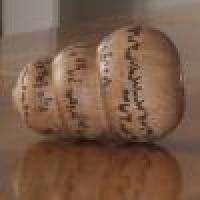
Plus Advent Calendar Door #12: And the winner is...
Yesterday some of our heroes, Stephen Hawking and the team that found the Higgs boson at CERN, were awarded $3 million each by the Fundamental Physics Prize Foundation. Congratulations!
It's a prize for achievements in physics, but as we all know, physics is written in the language of maths. And this wasn't the only prize celebrating maths this year...
The Abel Prize 2012 — When did you first realise that you like numbers? Was it when you were first learning your times tables and saw all those number patterns and rhythms unfold in front of your eyes? If yes, then you'll be happy to hear that this year's Abel Prize, one of the highest honours in mathematics, has been awarded to a man whose most famous result answers a simple question related to those humble number sequences.

Prizes from the European Congress of Mathematics — At the beginning of July Plus went to the European Congress of Mathematics in Krakow! Around 1,000 mathematicians came together there for a week-long programme of talks and seminars. In this podcast we talked to Tom Sanders and Alessio Figalli, who were awarded prizes for their excellent contributions to maths, Arieh Iserles, a distinguished mathematician from the University of Cambridge, and a group of PhD students visiting their first big conference.
A Nobel Prize for quantum optics — The 2012 Nobel Prize for Physics has been awarded to Serge Haroche and David J. Wineland for ground-breaking work in quantum optics. By probing the world at the smallest scales they've shed light on some of the biggest mysteries of physics and paved the way for quantum computers and super accurate clocks.

How to make a marriage stable — How do you best allocate students to universities, doctors to hospitals, or kidneys to transplant patients? It's a tough problem that has earned this year's Memorial Prize in Economics.

String Theory, Duality and Art: how the Higgs boson and Turner Prize collide — On the face of it, an artist and a theoretical physicist might seem an unlikely pairing. But Turner Prize-winning sculptor Grenville Davey and string theorist David Berman's collaboration is producing beautiful, thought-provoking work inspired by the fundamental structure of the Universe. Julia Hawkins interviewed them to find out more about how the Higgs boson and T-duality are giving rise to art.